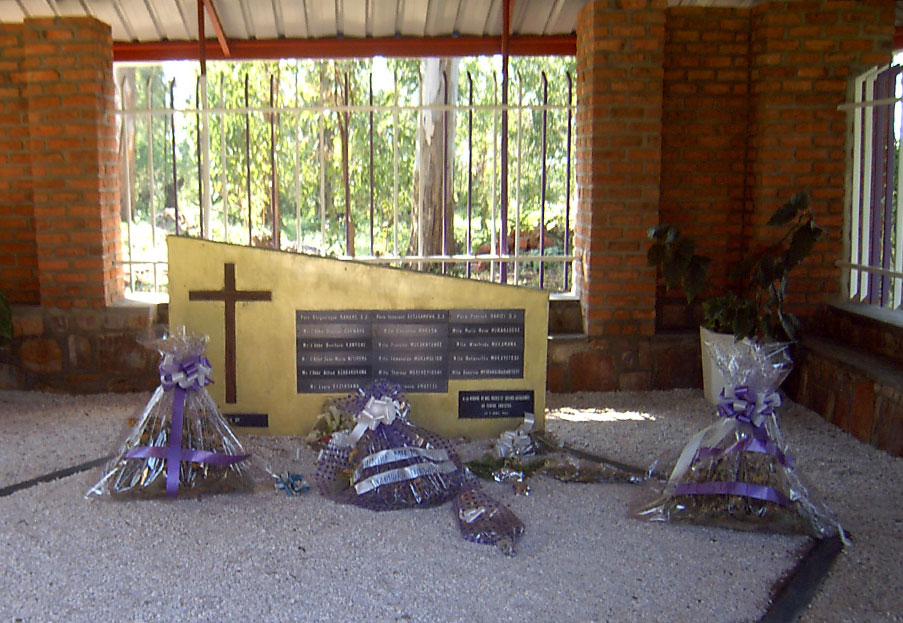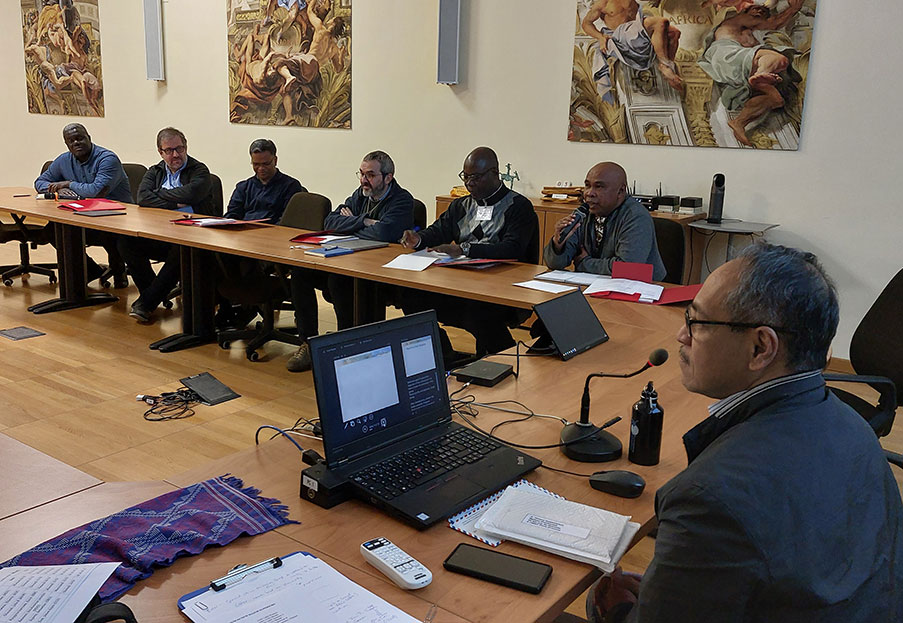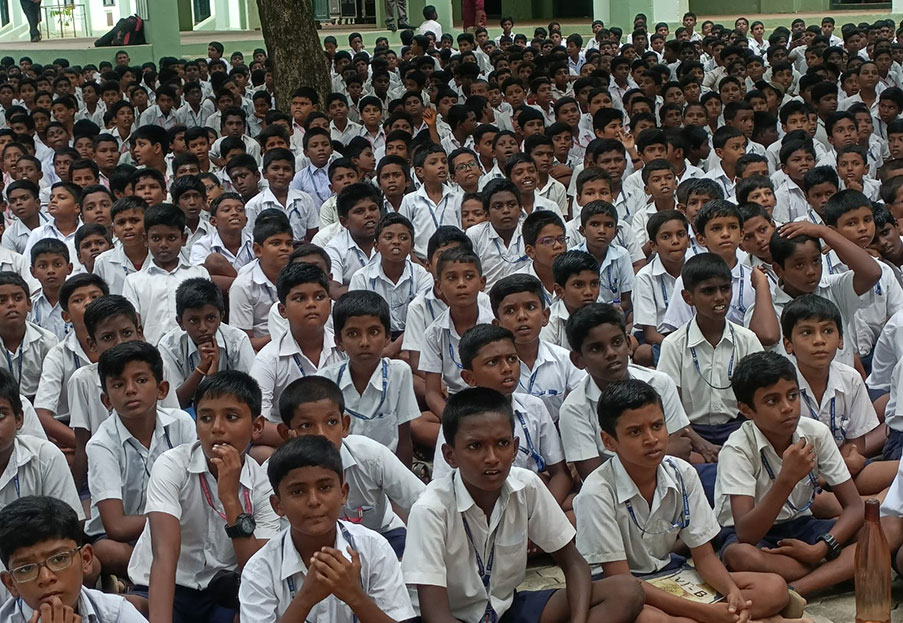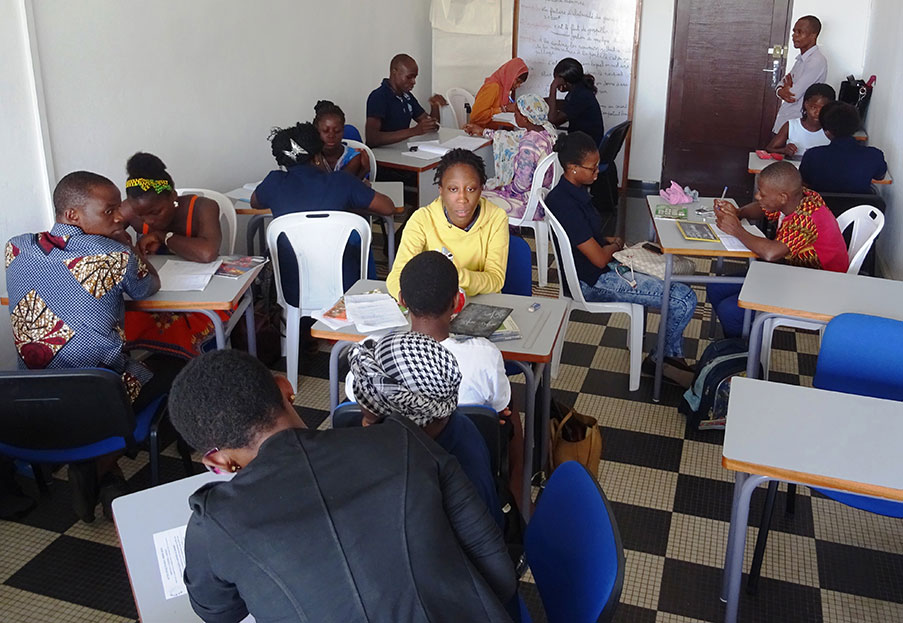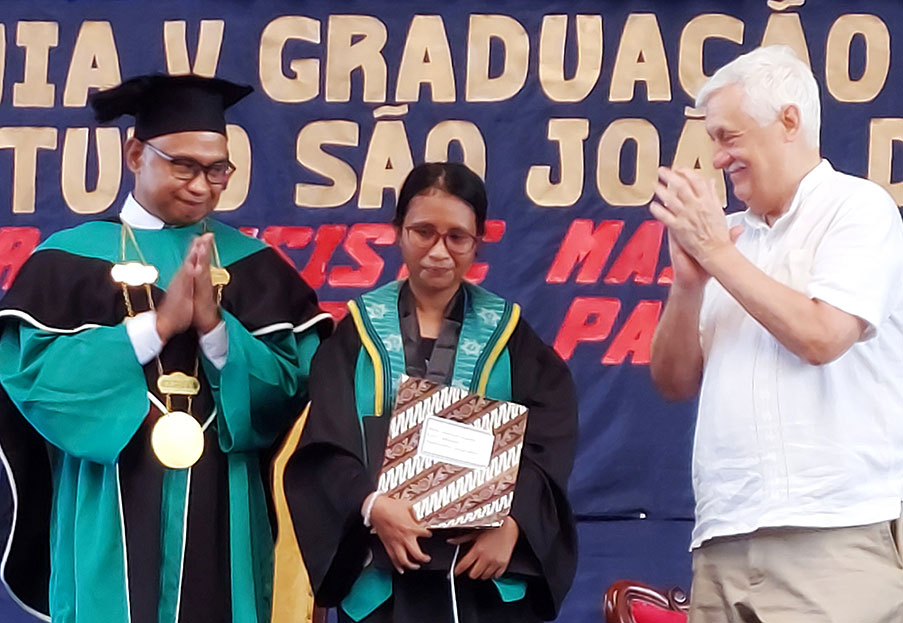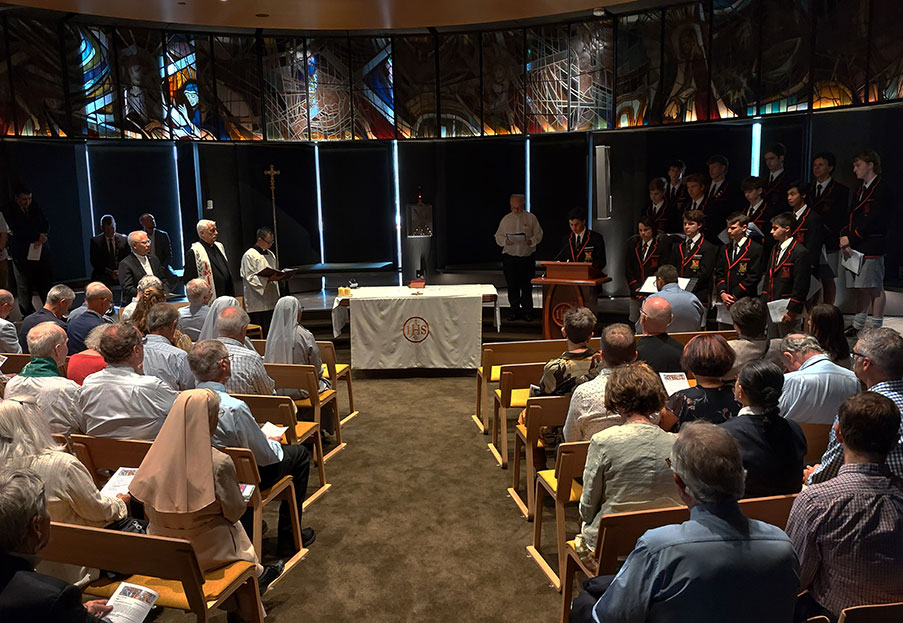Madagascar: Jesuit education also in the south of the island
In various ways, the Society of Jesus is very much involved in education in Madagascar. At the university level, it is in the process of bringing together various professional institutes by forming the Université Magis. But, as in many other countries, it is through its “colleges” (which include the primary and secondary levels) that the Jesuits have established their reputation. Much has been said about the Collège Saint Michel in the capital Antananarivo; located 600 km to the south, in Mananjary, the Collège de l’Immaculée Conception (CIC) offers the young people of the region the spiritual and educational tradition of the Society.
Father
General’s visit to the Province of Madagascar, including the south of the
country, gives us the opportunity to get to know this institution headed by Fr.
Andry (Herizafiniaina Andrianaivosoa). We interviewed him.
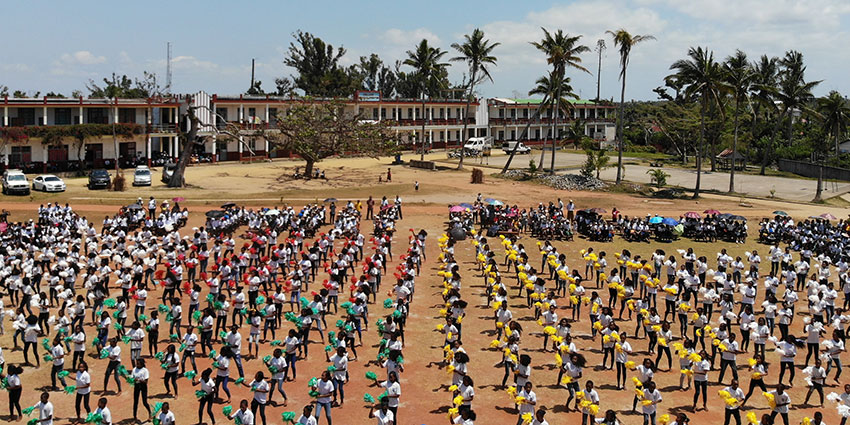
Welcome of Father General by the CIC students - the flags of Madagascar and the Vatican are symbolised.
Father Andry, first of all, a few historical notes about the CIC?
The college was founded by a French Jesuit in 1956, It then passed briefly under the direction of a congregation of teaching brothers, then of the diocese, then of a French group before returning to the Jesuits (first the Polish Jesuits) in 1987. The Province of Madagascar has assumed full responsibility for it since 2004.
How does the college respond to the needs of young people in the region?
The objective has always been to provide a quality education to the young people of Mananjary. The school is accessible to all. Like all other Jesuit institutions, the CIC strives to provide a holistic education. The poverty and difficulties that the young people of Mananjary face in their families and in society require an education that emphasizes accompaniment and cura personalis, personal attention for each student. The Jesuit education offered by the CIC responds to this need.
Madagascar is struggling to emerge from poverty and to develop for the benefit of all its people. How can Jesuit involvement in education support this?
Madagascar
is one of the poorest countries in the world. Jesuits live with their people.
We are convinced that education remains a major key to developing the country.
We are open to any collaboration to carry out this double mission of education
and poverty eradication.
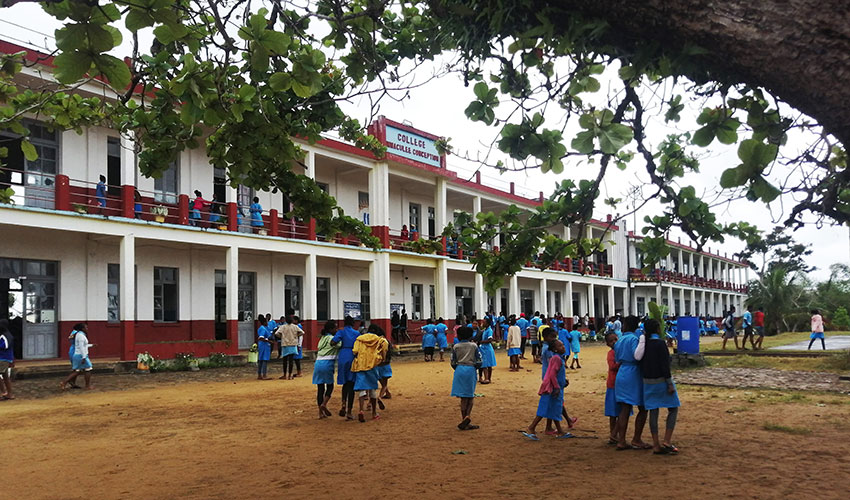
Students of the CIC during recess.
In some of the developing countries, the Jesuits have been criticized for forming an elite, young people who, as soon as they have the possibility, leave the country and take advantage of their formation to create a future abroad. What is the situation here?
Admittedly, our Jesuit schools were known to favour elitism. But conversion is always possible! Gradually, we have moved away from elitism. We are convinced that our mission is to form committed young people, not to promote elitism. We are happy to help our students with the spirit of the Ignatian Magis. The document “A Living Tradition”, which outlines the orientations of Jesuit education for today, shows us the way for educating to face the challenges of the 21st century society. In this spirit, we trust that our young people will take a greater interest in the development of their own country.
And how is the spiritual and religious dimension experienced at CIC? Are the students open to it?
Yes,
they are very receptive to it. The CIC is a Catholic school that is open to
all, regardless of their religious affiliation. The school is the place par
excellence to live ecumenism, because the Ignatian spirituality that guides us
goes beyond the simple practice of rites. We offer retreats to our young
people; we also teach them the practice of the examen of conscience. Our ways of accompanying them show them the
richness of Ignatian spirituality. so overall, our young people benefit from it
greatly.
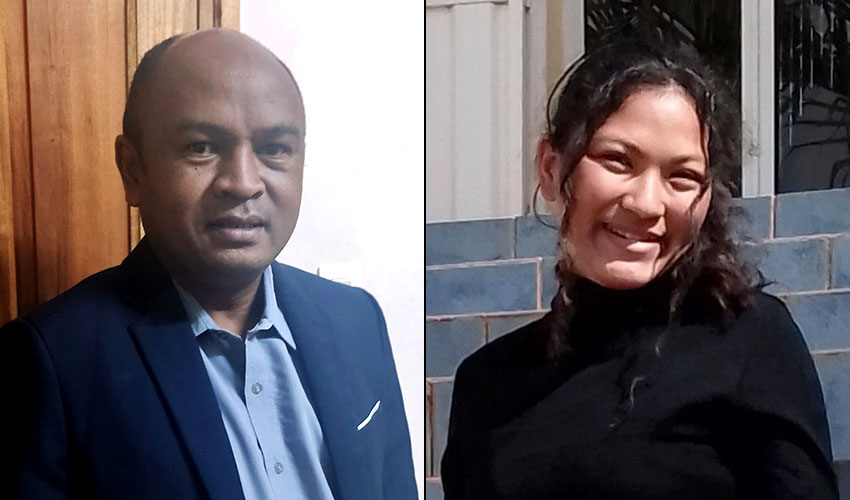
Fr. Andrianaivosoa Herizafiniaina (Andry), Rector of the CIC (left) and Cynthia Yvette Heliharisoa, alumna of the CIC (right).
To give a concrete face to what he says, Father Andry shared with us the testimony of a former student, Cynthia Yvette Heliharisoa.
I studied at the Collège Immaculée Conception Mananjary. This institution offered me many lessons to follow in my life.
First of all, spiritually. The importance of prayer, knowing how to talk to God about our successes, our failures, our joys, our sorrows, everything! He is always by our side to support us. In this school, we do a recollection that allows us to connect with God and with ourselves. In addition, the school taught me to give the best of myself, to go on and on towards success, “the Magis”. It promotes this vision “to form men and women with and for others for the glory of God.” This has pushed me to help others in times of need because I do not live for myself alone but also for others around me. I have developed a sense of selflessness as well as discipline. This school trained me to be disciplined and organized in life and, until now, I am still walking in this way: punctuality, good behavior, respect for myself and others, sense of responsibility...
Secondly, intellectually. Access to the library has helped me a lot to deepen my knowledge. Along the same lines, this school teaches us perseverance, intellectual rigour, seriousness in our studies and then in everything we do.
I add the lesson of life, which combines the physical and the mental. There is room for both team sports and individual sports. You learn solidarity there, as well as how to work in a group.
In short, this establishment has trained me, through teaching and education in the broadest sense, to be the woman I am today.
